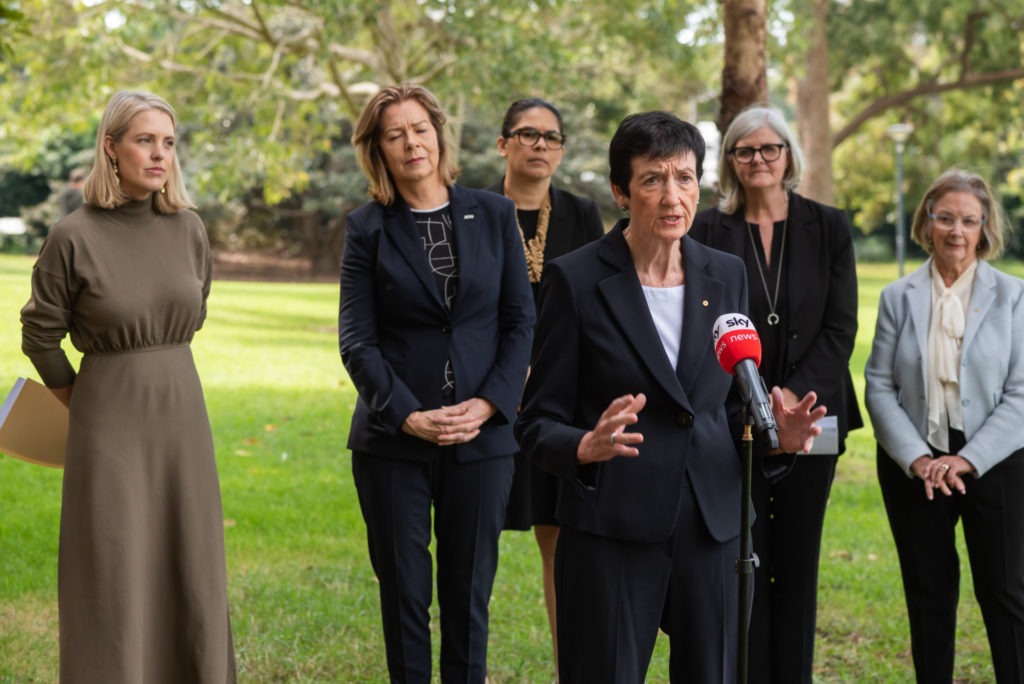On Wednesday, a group of leading women and representatives of parents, workers and business came together with a joint goal of making Australia a place where all women can live and work freely and safely, and reach their full potential.
Ahead of the federal budget next month, the representatives including Executive Director of The Parenthood Georgie Dent, Michele O’Neil, president of the Australian Council of Trade Unions, Jennifer Westacott, CEO of the Business Council of Australia, Sam Mostyn, President of Chief Executive Women, Natalie Walker, Deputy Chair of Goodstart Early Learning and Wendy McCarthy AO have signed a joint policy statement urging the government to prioritise the economic security and safety of women.
“The goal is for Australia to be a nation in which all women and their children can live and work freely and safely and reach their full potential. We stand together, firm in the knowledge that, achieving these changes would benefit all in our nation,” Georgie Dent said on Wednesday.
“We believe creating that nation is not beyond us, and we believe this is the moment for Australian leaders, to work together, to create that change.”
“A country that is unsafe for women is unsafe for all. A country in which women are equal is a country in which we can all prosper.”
The group also welcomes the creation of the government’s Cabinet Women’s Taskforce as an opportunity to make the safety and economic security of all women a priority.
The policy statement highlights some key areas that should be addressed in the 2020/21 budget, including:
Reinstating the Women’s Budget Statement
- Ensuring it is integrated with gender-responsive budgeting during budget planning cycles;
- It covers expenditure across all Government Departments;
- It is prepared independently by the Parliamentary Budget Office and with input from the women’s sector.
Investing in and reforming early childhood education
- Work to the goal of universal access to quality early childhood education and care;
- A first step should be to change the taper rates and per child cap to remove disincentives to increase women’s workforce participation, and address supply side constraints;
- Improved secure funding for the workforce that ensures the attraction and retention of highly skilled, better paid educators in secure employment.
Paid parental leave
- Building on the Federal Government’s most recent amendments to paid parental leave by expanding the Government’s Paid Parental Leave Scheme to 26 weeks, flexibly shared by both parents, and providing an additional two weeks leave for each parent when care is equally shared
Funding for family and domestic violence services
- Provide new and adequate funding for domestic, family and sexual violence services, as well as funding for improved prevention of gendered violence, an accountability mechanism and law reform.
Funding aged care
- Adequately funding aged care and addressing workforce issues including the undervaluation of the predominantly female workforce skills and pay, improved training and staff to resident ratios.
The policy statement also recommends:
- Supporting paid domestic and family violence leave for all workers, with a goal to work towards 10 days.
- Ensuring sexual violence is always included in the definition of family and domestic violence, in legislation, policies and the National Action Plan.
- Continue to implement the recommendations in the Federal Sex Discrimination Commissioner’s Respect@Work report to address workplace sexual harassment.

